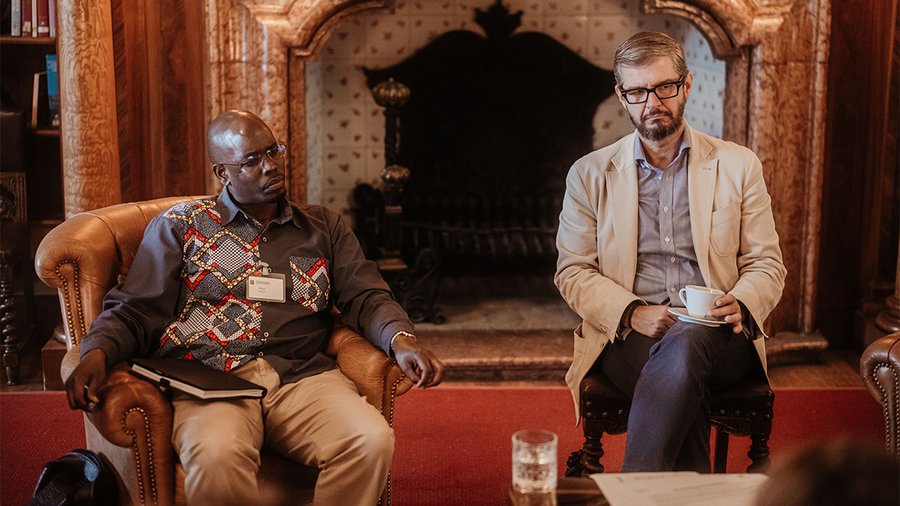Balancing social justice, decarbonization, and a science-based energy transition in Brazil
João Marcos Paes Leme is the Director of the Energy Department at Brazil's Ministry of Foreign Affairs, a position he has held since September 2023. In recent years he served as Deputy Head of Mission (Political) at the Embassy of Brazil to the United Kingdom (2018-2023), a post he also held at the Embassy of Brazil to the People's Republic of China (2016-2018).
Audrey Plimpton, Communications Associate: In one sentence, what does a just transition from oil, gas, and fossil fuels mean for Brazil?
João Marcos Paes Leme, Director of the Energy Department, Ministry of Foreign Affairs, Brazil: It means we have to devise how to do it, not if we should do it.
AP: What are the benefits of implementing just energy transitions, both in Brazil and worldwide?
JMPL: Energy transitions, as I see it, are more than energy. It's actually a process leading to a new economic paradigm. Since we're moving from one cycle to the next, I think we should try to avoid the problems we had in the previous system and the traps that the new one might have in store for us. It has to deliver more justice to be inclusive; we usually call them just and inclusive transitions [to include the] social aspects of it. It has to, of course, decarbonize and move to cleaner forms of producing and consuming energy. The urgency of climate change doesn't allow us much time to start doing what we have to do.
AP: How can evidence-based research be better integrated into policymaking to ensure that just transitions are effectively implemented?
JMPL: This is a very important issue. As countries rush into new technological pathways to try to address the task of decarbonizing and transitioning to cleaner forms of energy production and consumption, we have to be very careful in assessing each of these paths without prejudging them, but also based on scientific and objective criteria. The most relevant thing is to assess each of them by the carbon intensity and life cycle analysis and all these scientific and objective considerations of the options so that we don't end up with solutions that are promoted for another reason that is not science-based decision making. These criteria should be comparable [and] should be from the beginning to the end of the cycle so that we know what solutions are more adequate to the situation. Of course, this also has to take into consideration the circumstances of individual countries [and] regions or even regions within a country.
A big country like Brazil has different realities. In Brazil we have made choices in the past that help us today have an energy mix that is already much cleaner than most – the cleanest among the world’s largest economies, at any rate. We also have some experiences to share that may be useful for other countries in similar circumstances.
AP: How can we better align international conversations and commitments with domestic policy planning and implementation?
JMPL: This is an important question for us in particular, as Brazil is currently the president of G20 and next year, will be hosting COP 30. One issue that we've been trying to promote, among others, is the importance of energy planning within countries because the implementation of international commitments will, of course, be done by countries individually. There is a wide gap in the capacity of implementing and designing energy planning policies within countries. This is something we've been discussing in the G20. Another issue that affects countries very disproportionately is the ability to finance the transition. The studies that have been looking into this show that there's a disproportion of investments being made in cleaner technologies or in transitions in developed countries, far more than in developing countries. As we know, climate change doesn't respect borders. Part of this investment should head to developing countries as well so that they can work on their transitions at a pace compatible with the situation we are living [in].
João Marcos Paes Leme attended the "Policy Dialogue on Just Energy Transitions: Identifying Pathways to Prosperity Post Fossil Fuels" in September 2024.



